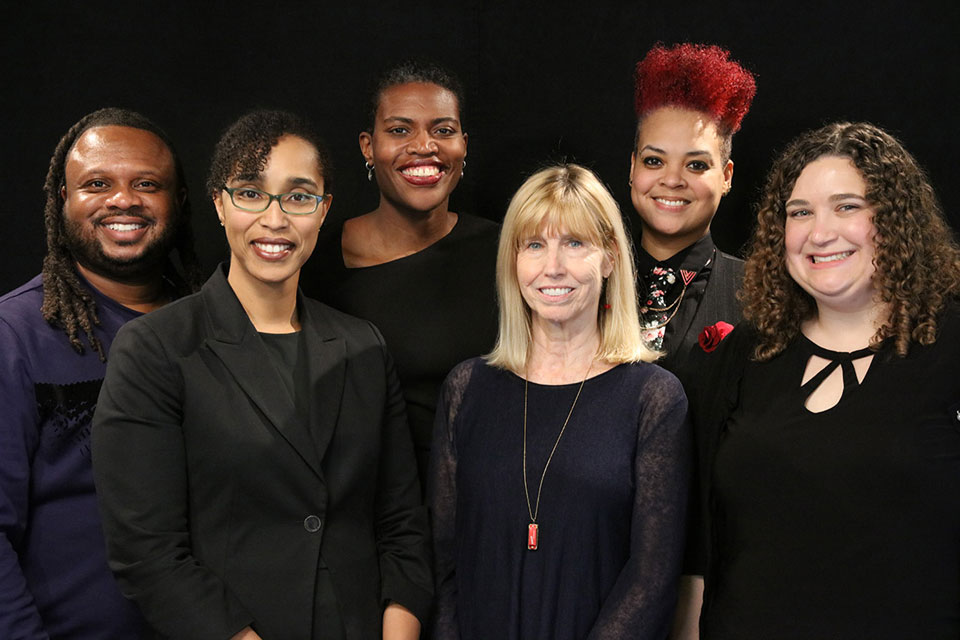SLU Researchers Receive Grant to Evaluate the Effects of Racial Equity Tools on Policy
ST. LOUIS – A group of Saint Louis University professors has received a prestigious grant from the Robert Wood Johnson Foundation’s Policies for Action program to evaluate the effects of racial equity and social justice initiatives on policy nationwide.
While nearly 200 city and county governments have in recent years adopted tools to identify racial and ethnic disparities in their communities, no one has examined whether the adoption of these tools has resulted in actual changes in policies or laws that relate to employment, housing, access to health care and childhood education – key social determinants of health.
Spearheaded by principal investigators Ruqaiijah Yearby, J.D., M.P.H., and Sidney D. Watson, J.D., the Jane and Bruce Robert Professor of Law, both of the Center for Health Law Studies, SLU’s research team will work with the developers of these equity tools to identify characteristics of the cities and counties that have adopted the tools and assess their stages of readiness for changes in law and policy.
Other SLU team members include Keon L. Gilbert, Dr.Ph., M.P.A., associate professor of behavioral science and health education; Amber Johnson, Ph.D., associate professor of communication; and Kira H. Banks, Ph.D., associate professor of clinical psychology. They are joined by Stephanie McClure, Ph.D., assistant professor of biocultural medical anthropology at the University of Alabama. The project manager is Nicole Strombom, a third-year law and master of public health student at SLU.
The team will assess the types of equity tools being used, the tool source, the duration of tool use, community engagement, the focus of law and policy changes, and advocacy strategies for change. Following this work, the team will conduct four case studies on a selected city or county’s stage of readiness for change, adoption process of racial equity tools, and influence of racial equity tool adoption on law and policy changes. The data collected then will be used to create comprehensive maps that visually explain the new insights into racial equity tool adoption and influence on law and policy.
"At a time when local and county governments are acknowledging that their laws, policies, and procedures have resulted in racial inequities, it is imperative to evaluate whether their use of racial equity tools influences changes in laws, policies, and procedures that address racial inequities in housing, health, education, and employment," Yearby said. "However, this is just the first step in understanding how local and county governments can eradicate racial inequities by implementing changes in law and policy and increasing the involvement of communities impacted by racial inequities in these changes."
"Our research seeks to identify promising new policies that cities and counties can use to dismantle neighborhood segregation, increase employment options, and improve childhood education for people of color,” Watson said. “For a decade, I and others at SLU have researched how better access to Medicaid and private health insurance can improve the health of all Americans, but especially minority Americans. With this research, we are broadening our scope and looking at how policies that relate to housing, employment and childhood education can also improve health.”
"It is exciting to see SLU leading the way nationally in identifying solutions to eliminate racial and ethnic disparities in our communities," said Ken Olliff, vice president for research. "Our team’s selection as a Robert Wood Johnson Foundation grant recipient speaks to the caliber of our faculty. This critical work is all-the-more impressive because it engages our mission as a Jesuit institution and involves SLU researchers and students collaborating from across disciplines. I look forward to following the team's research as it develops."
SLU’s team was selected as one of 11 new Policies for Action grantees as part of the program’s mission “to identify policies, laws, and other system and community levers that can help ensure everyone has the opportunity to live a healthier life.” Policies for Action (P4A) is a signature research program of the Robert Wood Johnson Foundation, administered through the national coordinating center at the Urban Institute.
About the Robert Wood Johnson Foundation
For more than 45 years the Robert Wood Johnson Foundation has worked to improve health and health care. We are working alongside others to build a national Culture of Health that provides everyone in America a fair and just opportunity for health and well-being. For more information, visit www.rwjf.org.
About Saint Louis University
Saint Louis University is a Catholic, Jesuit institution that values academic excellence, life-changing research, compassionate health care, and a strong commitment to faith and service. Founded in 1818, the University fosters the intellectual and character development of more than 13,000 students on campuses in St. Louis and Madrid, Spain. Building on a legacy of nearly 200 years, Saint Louis University continues to move forward with an unwavering commitment to a higher purpose, a greater good. Learn more at www.slu.edu.
For more information, contact Jessica L. Ciccone, director of communications, Saint Louis University School of Law, jessica.ciccone@slu.edu, 314-977-7248.


















